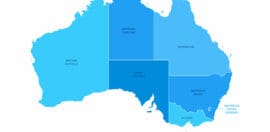Low-income Aussies have come out of COVID more financially vulnerable than before

31 May 2021 at 3:59 pm
Accessing super and increased debt during COVID will have lifelong consequences for women, those over 45, single parents and disability pension recipients
A new report has found that while for some people COVID-19 came with a financial silver lining, others are suffering ongoing and potentially lifelong impacts.
The Brotherhood of St. Laurence’s Shocks and Safety Nets report found that many people aged over 45, disability pension recipients, women on low incomes and single parents reported being left with dwindling financial buffers post-pandemic.
This comes from having to access savings, drawing from superannuation and increasing debt.
Lead author Dr Emily Porter told Pro Bono News that the one thing that stood out to her from the report was just how much some groups drew down on their superannuation.
“Superannuation is obviously something that provides economic security in the long term and while we can see that Australia has come through COVID really well, there’s a lot of people that are [now] in a weaker position,” she said.
“It’s not immediately obvious until you look at what’s happened to their savings and what’s happened to their super.”
The report is part of the Financial Lives in Uncertain Times series that examines patterns of financial wellbeing in Australia. It incorporates data from the ANZ Roy Morgan Financial Wellbeing Indicator derived from the Roy Morgan Single Source survey, which canvases approximately 50,000 Australians annually.
The indicator has three dimensions: ability to consistently meet financial commitments such as paying bills and buying groceries; feelings of comfort and financial resilience, which is the financial buffer someone has in the event of a financial shock.
It is the financial resilience of low-income Australians that’s taken the real hit.
The report found that temporary policies such as the coronavirus supplement did moderate the impacts of the crisis but they were short-term. Those who had access to the increased income support payments reported an improved ability to meet financial commitments for the COVID period. Yet many still had to draw on their savings or access their superannuation leaving them in a more precarious situation.
Porter’s concern is that for those who used their super or spent their savings, the opportunity to recoup their money back is likely to be limited.
“At the moment our [government’s] policies aren’t supporting people to do this. Wage growth has been flat for years and there’s an increasing shift towards part-time work,” she said.
“When people don’t have a good or even a full-time income it becomes much harder to meet everyday expenses and have anything left over to save.
“We saw in the recent federal budget that wage growth isn’t expected to increase over the next few years and while there’s been a decrease in underemployment, which is great, the rise in employment is leaning more towards part-time work.”
For Porter, a number of things need to change from a policy perspective to address these ongoing challenges.
She pointed to recent research from Ben Phillips of ANU’s Centre for Social Research and Methods that showed a 10 per cent increase in social security spending on working-age payments would change so many people’s lives.
“So, I think that needs to happen immediately,” she said.
“We also need to make changes to the liquid asset tests. You saw that when people lost their jobs during COVID, they could access benefits immediately and didn’t have to wait for 13 weeks. We need to create a welfare system where people don’t have to wait until they have nothing before they can access any support.
“And finally, people also need to have quality work. The changes in the labour market over the last 30 years have really downgraded the quality of work available and the minimum wage isn’t as good for people as it used to be. So we need to [continue to] boost full employment while also boosting the minimum wage.”
With Victoria in the midst of its fourth lockdown in 12 months, and this time without the same government support in place, the most vulnerable Victorians are set to face a new set of challenges.
Porter said that for Victorians without their own savings, who are reliant on insufficient government support, it could be a time when they don’t get paid or can’t access benefits immediately.
“It’s why we need more than just temporary coronavirus supplements in place to protect people from these kinds of shocks. You have to have systems in place. We need to have long-term plans to allow Australians to weather the storms.”
You can read the full report here.







